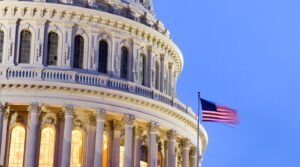The so-called “occupy movement”—which began with Occupy Wall Street and then spread to other cities—is back. After a period of relative calm during the winter months, the movement reappeared in mid-March to celebrate the passage of six months since its initial protests in New York City. While the encampments themselves may come and go depending on the weather and resolve of city officials, the movement enjoys a persistent influence on our public discourse. The movement’s complaint about the inequality between the upper 1% and the lower 99% of American society has become a powerful rhetorical tool of the American left.
But the complaint, whatever its rhetorical power, is intellectually groundless. As a mere lament about inequality it is unrelated to any sober appreciation of human realities. As a complaint about injustice, or about the abuse of social power and influence, it is undermined by the left’s own moral crusades of the last two generations. An inquiry into the vacuity of the Occupy Movement’s critique of American society reveals two serious failings of the contemporary left: its utopianism, on the one hand, and its tendency to devour the very moral principles necessary for an effective defense of social justice, on the other.
To some extent, the movement’s invocation of the 99% against the 1% is meant to convey, without further argument, a sense of injustice: it is wrong that the 1% should have more wealth and political influence than the vast majority of the society, or at least it is wrong that the inequalities should be so large. In other words, the complaint assumes that inequality is injustice, or at least that extreme inequalities amount to injustice. While this certainly sounds reasonable, a moment’s reflection reveals that the fact of inequality itself, even extreme inequality, is not a sufficient basis on which to criticize a society—at any rate if we are applying realistic and non-utopian standards.
Machiavelli famously dismissed earlier classical and Christian political thought, with its belief that politics should aim to make men good and noble, as idle talk of “imaginary republics and principates.” That is not, he suggested, how political societies really are. Liberals are inclined to agree with that critique, but then they fall into a similar mistake by pressing too hard their complaint about inequality. To insist on a large scale society that is free from political and economic inequalities, or even free from extreme inequalities, is to demand an imaginary society. Experience teaches us that all human societies are characterized by inequalities: some people enjoy more benefits, status, and power than other people. The larger and more complex the society, the more extreme the inequalities become. Even modern societies that make equality their explicit aim fail to achieve it and in fact maintain extreme inequalities. Most people in the Soviet Union were not members of the Communist Party, and most Party members were not high-ranking enough to have significant influence compared to those at the peak of the pyramid.
Inequality, therefore, is simply a fact of human social life. To be sure, it may reasonably become a matter of complaint if it turns out to be an impediment to people’s enjoying other goods that they are due. Despite what the Occupy Movement wants us to believe, however, it is far from clear that this is the case in contemporary America. Certainly the elevation of the 1% is compatible with the life of the 99%. Starvation in America is not a widespread problem. Inequality is even compatible with the positive material flourishing of the 99%, who enjoy access to all manner of consumer goods and services, as well as higher things like education, far in excess of what was available in earlier societies, even societies characterized by less extreme inequalities of wealth. This generally rosy view may indeed conceal very real abuses and evils that should be remedied through political or economic reforms. But to speak in this way is already to surrender the moralistic utopianism of the left’s simple complaint that the 1% has more wealth and influence than the 99%.
Start your day with Public Discourse
Sign up and get our daily essays sent straight to your inbox.Ultimately the Occupy critique goes beyond a simple complaint about the fact of inequality. The argument is pressed further, not merely that inequality is presumptively unjust, but that the 1% use their superior influence to rig the game of American life in their favor, at the expense of the 99%. We have a problem not just of inequality but also of exploitation. Given man’s fallen condition, some measure of such exploitation is probably inseparable from social life; and we might therefore respond to this complaint with reflections similar to those above. Why, we might ask, should we get so excited about such exploitation if it is compatible, as it evidently is, with an unprecedentedly high standard of living for all members of society? To raise this response is not necessarily to endorse or acquiesce in such injustices. It is merely to observe that they are part of the normal course of events, inevitable in any society, and therefore that their existence in ours does not constitute a justification for a radical reconstitution of society, as some of the Occupy protestors seem to desire, but rather for specific, limited reforms aimed at specific ills.
But why should we even care about such injustices, if they do exist? Put another way, why shouldn’t the 1% exploit the 99% if they think they can get away with it? In raising this question we move beyond the utopianism of the Occupy Movement and expose the moral bankruptcy into which the American left has spent itself over the last half-century.
The exploitation of the poor by the rich, and the moral condemnation of such abuse, is a common theme of the Bible. To that extent, our civilization has—or had—access to a widely respected moral tradition through which we could question such exploitation. For the last sixty years, however, the American left has dedicated considerable energy to undermining the social and cultural authority of biblical religion. They have tried, and succeeded to a considerable extent, to convince Americans that any appeals to religious morality are illegitimate in a pluralist democracy. The left’s full-court press against religion was really intended to advance specific aims: for example, the advancement of sexual liberation, which is impeded by conceptions of sexual morality held by traditional religions. But now they find that their effort to marginalize religious morality leaves them without an important source of support in their quest to evaluate inequality and exploitation.
Moreover, the American left has, by its own political example, repeatedly undermined the public sense that it is wrong for a small minority to use superior social power to impose its views or interests on the majority. It has done this most obviously by its persistent use of the judicial power to achieve aims that could not win popular political support. This is the mode by which the left has imposed extreme secularism in government, a liberal abortion regime, and is the mode by which it is trying to redefine marriage. In each of these cases the judicial victory was awarded to a position representing a minority of the population and was based upon constitutional principles that were transparently invented simply to achieve a desired outcome. If the left is willing not merely to tolerate but in fact to celebrate such maneuvers, on what principled basis can they complain that a wealthy minority manipulates law and policy to its own advantage? Complaints about the power of the 1% ring hollow in the mouths of those who have shown themselves willing to govern contrary to popular consent.
Finally, the left’s insistent promotion of a right to abortion further undercuts the capacity for indignation about the exploitation with which the Occupy Movement is now concerned. Abortion necessarily involves the exploitation of weak human beings by strong ones. This conclusion is unavoidable unless we adopt the claim that the being whose life is ended by abortion is not human. This claim, however, is hardly credible on its own terms and was proposed precisely in order to obscure the exploitation in question. Furthermore, this exploitation, done in the name of individual autonomy, necessarily involves a denial of moral bonds that are essential to social solidarity. According to the reigning pro-abortion ideology, individual autonomy is more important than a mother’s natural obligation to protect her particular child’s life, and also more important than the physician’s obligation to preserve and not destroy life in general. Contrary to what the left would like to believe, a society that, in the name of individual autonomy, authorizes mothers to pay doctors to destroy unborn children has already in principle authorized the wealthy to exploit the rest of us, if they can get away with it.
The Occupy Movement is a tool by which the American left wishes to compel America to rethink the question of social justice. It should instead be an occasion for the American left itself to rethink its own moral crusades, which turn out to be morally corrosive and hence incompatible with any serious commitment to social justice. Physician, first heal thyself.









